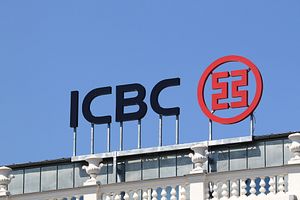On Wednesday, Spanish police raided the Madrid officers of the Industrial and Commercial Bank of China (ICBC), China’s largest bank, as part of an ongoing investigation into money laundering and tax fraud. Five ICBC directors were arrested after the raid, which involved over 100 police officers, according to Reuters.
Spain’s Civil Guard and Anti-Corruption Attorney’s Office, as well as Europol, suspect ICBC’s operations in Spain has helped launder 40 million euros ($44.6 million). The current probe, code-named Operation Shadow, is related to a 2015 investigation into “a Chinese criminal network” that allegedly imported goods without declaring them to customs, thus bypassing import duties and taxes. That 2015 investigation “revealed that the criminal network… deposited the money earned into ICBC, which is accused of sending the funds to China without checking their origin as required by law,” according to a statement from Europol. Europol adds that “several other Chinese and Spanish criminal syndicates… were using the services of ICBC Spain to introduce into the financial system funds earned through the crimes of smuggling, tax and excise fraud and labour exploitation.”
El Pais reports that, in total, ICBC Spain may have helped criminal organizations launder up to 300 million euros ($333 million).
In a statement, ICBC’s headquarters in Beijing said that its Madrid branch “is actively cooperation with the investigation.”
The Chinese Embassy in Spain said in a statement that the Chinese government has always demanded that Chinese companies working abroad follow both Chinese laws and the laws of the host country. “As we understand the situation, all Chinese financial organizations in Spain have done this,” the statement continued. The embassy added that it had first heard about the raid on ICBC Spain from Spanish media, and had not received any official notification from Spanish officials as of the statement’s release.
Chinese Foreign Ministry spokesperson Hong Lei also addressed the situation in a routine press conference on Thursday. “We hope that the Spanish side can deal with the relevant issue in a law-based and just manner, guarantee the legitimate rights of the Chinese enterprises and personnel in Spain, and maintain the sound development of China-Spain relations,” Hong said. He also pointed out the “sound momentum” of China-Spain relations, particularly in the economic arena. Hong noted in particular that “Spain has become one of the most important investment destinations for Chinese enterprises and financial institutions.”
This isn’t the first time Chinese banks abroad have gotten into trouble with law enforcement for alleged money laundering. In fact, according to Global Financial Integrity, China has the highest illicit financial outflows in the world, averaging $139 billion per year during the period from 2004-2013.
In December 2015, U.S. Office the Comptroller of the Currency ordered the Bank of China to strengthen its prevention of money laundering. China Construction Bank was hit with a similar enforcement action from the Federal Reserve in July 2015.
And last June, law enforcement in Italy indicted four mangers of the Bank of China’s Milan branch on money laundering charges (their initial hearing is set for this March). In that case, Italian officials complained that their investigation was hampered by “inconsistent cooperation, incompatible legal systems, and China’s secrecy laws.”
The State Department’s 2015 International Narcotics Control Strategy Report, which includes a section on money laundering, noted that China was improving its enforcement of anti-money laundering agreements, “and is gradually making progress toward meeting international standards.” However, “implementation and transparency remain lacking, particularly in the context of international cooperation,” the report noted.

































